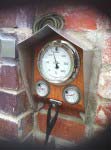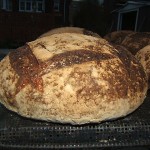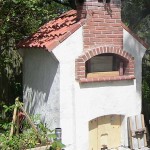weight and mass conversion
Find in: main Units menu • weight and mass menu • Qián Chinese
Amount: 1 Chinese qián (市钱) in mass
Equals: 0.000083 picul (tam) Hong Kong (担 / 擔)
Calculate picul (tam) Hong Kong in weight and mass per 1 Chinese qián unit. The weight and mass kitchen measuring units converter for culinary chefs, bakers and other professionals.
TOGGLE : from picul (tam) Hong Kong into qián Chinese in the other way around.
CONVERT : between other weight and mass measuring units - complete list.
Mass Weight and Density measuring units
Main weight, mass and densities multi-units conversion page.
Convert weight and mass culinary measuring units between Chinese qián (市钱) and picul (tam) Hong Kong (担 / 擔) but in the other direction from picul (tam) Hong Kong into qián Chinese also as per weight and mass units.
Culinary arts school: weight and mass units converter
This online culinary weight and mass measures converter, from 市钱 into 担 / 擔 units, is a handy tool not only for experienced certified professionals in food businesses and skilled chefs in state of the industry's kitchens model.
Other applications of this weight and mass units converter are ...
With the above mentioned units converting service it provides, this weight and mass units converter also proved to be useful as a teaching tool and for practising qián Chinese and picul (tam) Hong Kong ( 市钱 vs. 担 / 擔 ) conversion exercises by new culinarians and students (in classrooms or at home based kitchens) who have been learning this particular cooking mastery art in culinary colleges, in schools of culinary arts and all other kinds of culinary training for converting the weight and mass cooking units measures.
Unit symbols used by international culinary educational institutions and training for these two weight and mass unit measurements are:
Prefix or abbreviation ( abbr. ) brevis - short unit symbol for Chinese qián is: 市钱
Prefix or abbreviation ( abbr. short brevis ) unit symbol for Hong Kong picul - tam is: 担 / 擔
One Chinese qián in weight and mass sense converted to picul (tam) Hong Kong equals precisely to 0.000083 担 / 擔
How many picul (tam) Hong Kong of weight and mass system are in 1 Chinese qián? The answer is: The change of 1 市钱 ( Chinese qián ) unit for a weight and mass measure equals = into 0.000083 担 / 擔 ( Hong Kong picul - tam ) as per its equivalent weight and mass unit type measure often used.
Professional people always ensure, and their success in fine cooking depends on, they get the most precise units conversion results in measuring their ingredients. In speciality cooking an accurate weight and mass unit measure can be totally crucial. If there is an exact measure in 市钱 - qián Chinese used in weight and mass units, it's the rule in culinary career, that the Chinese qián number gets converted into 担 / 擔 - picul (tam) Hong Kong for the weight and mass absolutely exactly. It's like an insurance for the master chef for having always all the meals created perfectly, using either qián Chinese unit or picul (tam) Hong Kong unit measures.
Oven info & galleries
- Home Page
- Oven building CDrom details
- Pizza ovens
- New gallery
- Oven meals
- Vintage forum
- Rectangle shape vs. round igloo
- Building details
- Refractory concrete
- Heat resistant mortar
- Concrete cladding layer
- Thermal insulation
- Fire-bricks
- Fire-clay
- Saving money & time
- Good thermometer
- Oven building 1
- Building oven 2


